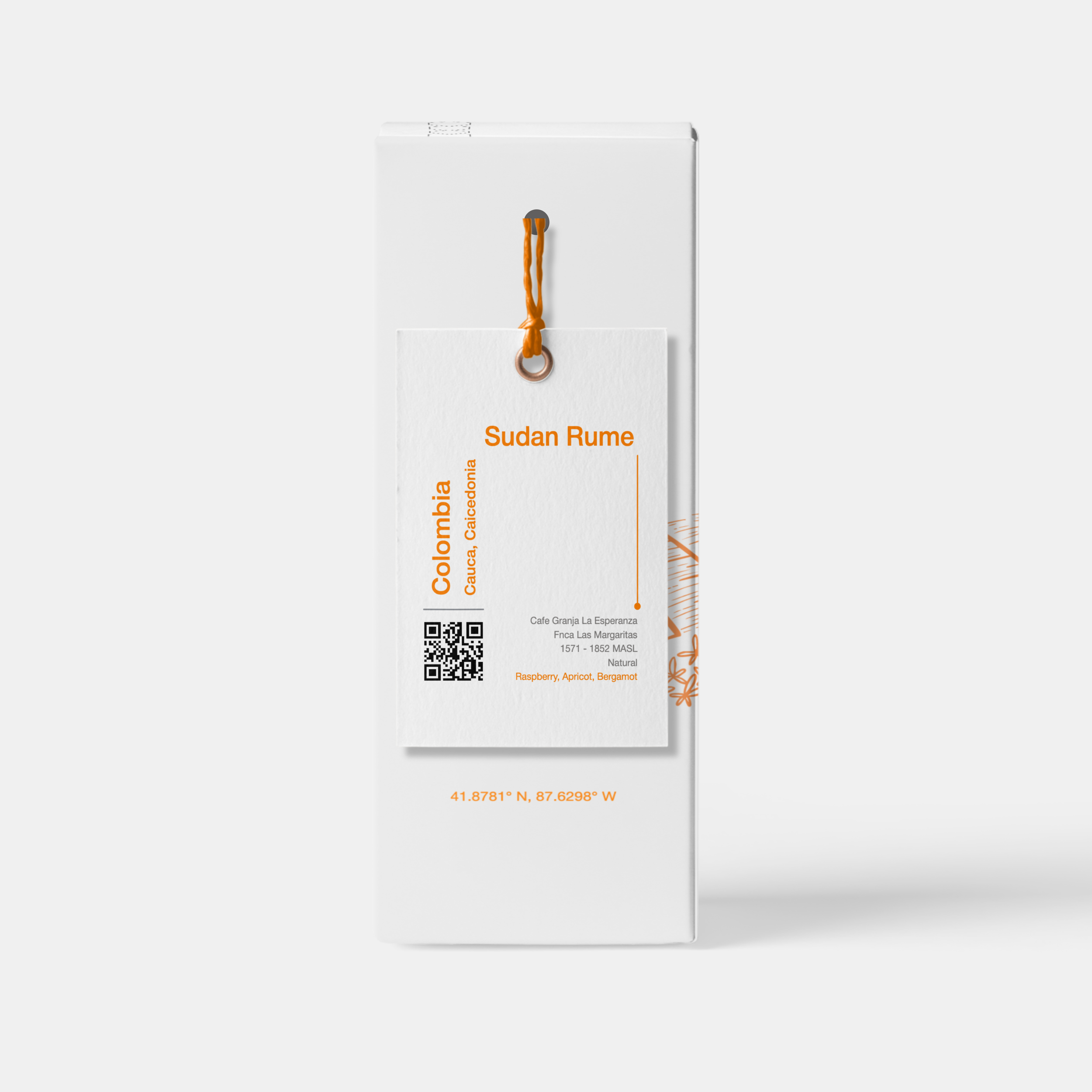Sudan Rume Coffee Variety: History, Genetics, Flavor Profile, and Cultivation
Sudan Rume is one of the most unique and sought-after coffee varieties in the world, known for its exceptional cup quality and deep historical roots. Originating from the Boma Plateau in South Sudan, near the Ethiopian border, Sudan Rume is a pure heirloom variety that has remained relatively untouched by modern hybridization. Its rarity, coupled with its extraordinary flavor profile, has made it a prized variety in the specialty coffee industry, with some of the finest coffee farms cultivating it in small quantities for high-end markets. While it is not as widely planted as more common varieties like Bourbon or Typica, Sudan Rume holds a special place in the history of Arabica coffee and continues to gain recognition for its potential in producing truly distinctive cups.
A farmer in Cafe Granja Las Margaritas.
Genetically, Sudan Rume is considered one of the purest representations of Coffea arabica, tracing its lineage directly to the wild coffee forests of East Africa. Unlike many cultivated coffee varieties that have undergone selective breeding for higher yields or disease resistance, Sudan Rume has remained genetically close to its wild ancestors. This genetic purity is a double-edged sword—it contributes to its incredible cup complexity and delicate floral and fruity notes, but it also means that Sudan Rume is highly susceptible to common coffee diseases, such as leaf rust. Because of this, it is often used in breeding programs to introduce desirable flavor characteristics into new hybrid varieties, while other plants provide the necessary disease resistance and productivity improvements. Despite these challenges, some specialty coffee producers continue to cultivate Sudan Rume as a testament to its unmatched quality.
The plant itself is relatively small and compact compared to other Arabica varieties, but it produces fewer cherries per tree, making it a low-yielding variety. This naturally limits its commercial viability, as farmers must dedicate significant resources to a crop that does not provide the same level of output as other, more productive cultivars. However, what Sudan Rume lacks in yield, it more than makes up for in cup quality. Its beans are often slightly elongated, similar to those of Gesha, another highly prized variety. Given the right conditions—high altitudes, rich volcanic soils, and careful processing—Sudan Rume can develop an incredibly refined flavor profile that commands premium prices in the specialty coffee market.
Las Margaritas Farm, Colombia, Valle Del Cauca
In terms of cup profile, Sudan Rume is known for its elegant and complex flavors, often showcasing floral aromatics, bright citrus acidity, and deep tropical fruit notes. Coffees from this variety can exhibit tasting notes of jasmine, bergamot, mango, and red berries, with a silky body and lingering sweetness that make them stand out among even the most celebrated Arabica varieties. When processed using washed methods, Sudan Rume tends to highlight its crisp acidity and delicate floral nuances, while natural or honey processing can bring out its deeper fruit tones and syrupy sweetness. These unique characteristics have made Sudan Rume a favorite among coffee competitions and high-end roasters looking to showcase rare and exotic varieties.
Despite its limited commercial viability, Sudan Rume continues to capture the attention of specialty coffee producers and consumers alike. Farms such as Granja La Esperanza in Colombia and Hacienda La Papaya in Ecuador have successfully cultivated Sudan Rume, producing exceptional micro-lots that have gained international recognition. Granja La Esperanza, known for its dedication to rare and exotic varieties, has pioneered the cultivation of Sudan Rume, showcasing its potential in coffee competitions and high-end auctions. As the demand for unique and heirloom coffee varieties grows, Sudan Rume remains a symbol of coffee’s rich heritage and the pursuit of quality over quantity. While its cultivation is challenging, its unparalleled cup profile ensures that it will remain one of the most coveted coffees in the world for those willing to seek out its rare and extraordinary flavors.
Sudan Rume Variety coffee cherry.
Sudan Rume is widely regarded in the specialty coffee industry as one of the highest-quality Arabica varieties, often associated with competition-winning coffees and record-breaking auction prices. Its extraordinary cup profile, characterized by vibrant florals, complex acidity, and deep tropical fruit notes, has made it a standout choice for barista championships and coffee competitions worldwide. Many elite coffee producers cultivate Sudan Rume in small, carefully managed lots, knowing that its rarity and refined flavors appeal to top-tier roasters and competitors aiming to showcase the most exceptional coffees. In global coffee events such as the World Barista Championship (WBC) and Cup of Excellence (COE), Sudan Rume has consistently earned high scores, reinforcing its status as one of the most prestigious and sought-after varieties. Its presence in these competitions not only elevates its reputation but also fuels the growing demand for rare, heirloom coffees that emphasize quality, terroir, and expert processing.
In 2015, Australian barista Sasa Sestic won the World Barista Championship using a rare Sudan Rume coffee from Colombia's Finca Las Nubes, processed through carbonic maceration. This innovative approach highlighted Sudan Rume's exceptional qualities on the global stage. More recently, in the 2024 World Barista Championship finals held in Busan, South Korea, South Korean competitor Junghwan Lim utilized a natural processed Sudan Rume from Colombia's Finca Las Margaritas. These instances underscore Sudan Rume's esteemed status among elite baristas in international competitions.





